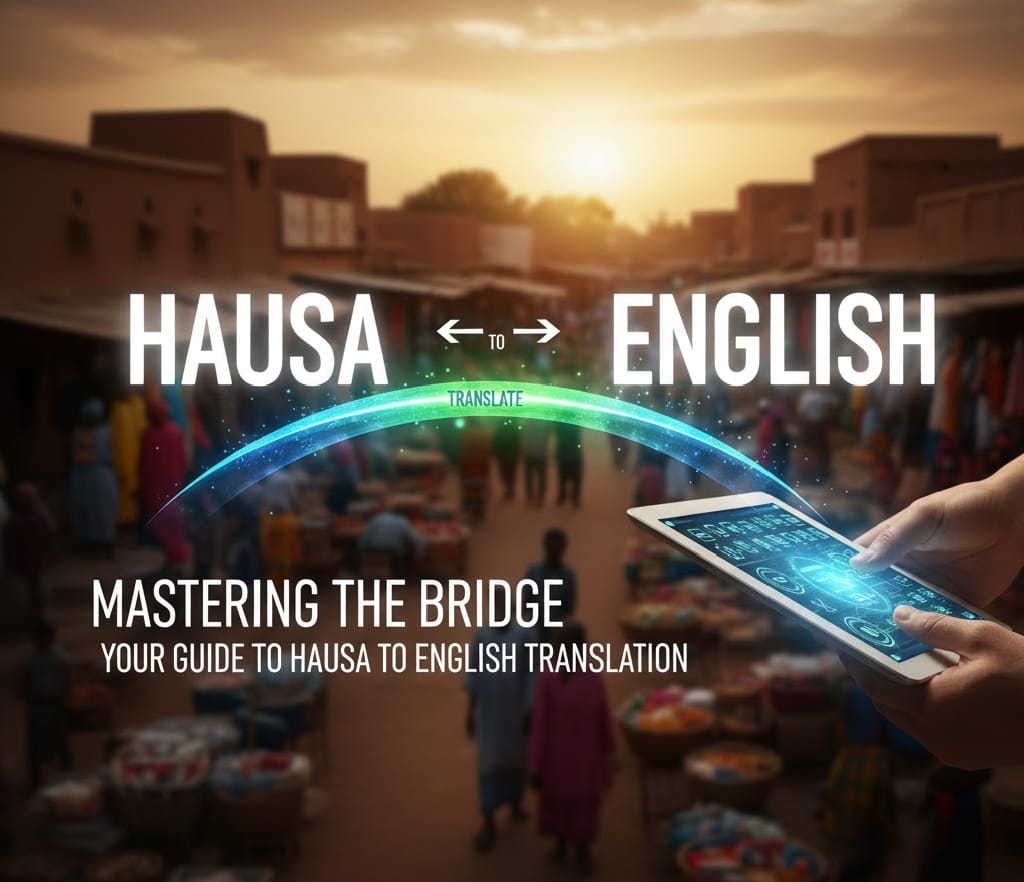Hausa to English: How to Translate English to Hausa Accurately

Sannu Da Zuwa! (Hello!)
Whether you are a business owner expanding into West Africa, a traveler exploring the vibrant markets of Kano, or someone reconnecting with their heritage, language is the key to connection. Hausa is one of the most spoken languages in Africa, serving as a lingua franca for millions of people across Nigeria, Niger, Ghana, and Cameroon.
However, navigating the linguistic shift between Chadic and Germanic languages can be tricky. Here is everything you need to know to master Hausa to English translation and how to accurately translate English to Hausa.
Why Hausa Translation Matters
Before diving into tools and tips, it is important to understand the reach of this language. With over 80 million speakers, Hausa is more than just a dialect; it is a language of commerce, media, and culture in West Africa.
Effective translation helps you:
- Build Trust: Speaking the local language, even imperfectly, opens doors.
- Navigate Culture: Understanding idioms and proverbs gives you insight into the mindset of the people.
- Expand Business: Many local markets operate strictly in Hausa.
Top Tools to Translate English to Hausa
Technology has made bridging the language gap easier than ever. When you need to translate English to Hausa on the fly, here are the best resources:
1. Google Translate (Hausa to English)
This is the most accessible tool for quick translations.
- Pros: Instant, voice input available, completely free.
- Cons: Can struggle with deep context or complex idioms. It is best for simple phrases like “Where is the market?” (Ina kasuwar take?).
2. Online Dictionaries (HausaDictionary.com)
For a deeper understanding, utilize dedicated Hausa dictionaries. These resources often provide context, showing you how a word is used in a sentence rather than just a direct swap.
3. Mobile Apps
There are several apps specifically designed for African languages available on the Google Play Store and Apple App Store. Look for apps that offer offline capabilities so you can translate Hausa to English even without a data connection.
Common Challenges in Translation
Translating isn’t always as simple as swapping word A for word B. Here are a few nuances to watch out for:
- Context is King: In Hausa, the way you address an elder is different from how you address a friend. A direct English translation might sound rude in Hausa.
- Gendered Grammer: Like French or Spanish, Hausa has gendered nouns. When you translate English to Hausa, you must know if the subject is masculine or feminine.
- Loan Words: Hausa has borrowed many words from Arabic and English (e.g., Asibiti for Hospital). Sometimes the “translation” is simply the English word with a Hausa accent!
Cheat Sheet: Essential Hausa Phrases
To get you started, here is a quick reference guide for common interactions.
| English Phrase | Hausa Translation | Pronunciation Tip |
| Hello | Sannu | San-nu |
| How are you? | Yaya dai? | Ya-ya dye? |
| I am fine | Lafiya lau | La-fee-ya low |
| Thank you | Na gode | Nah go-day |
| Yes | Eh | Ay |
| No | A’a | Ah-ah |
| I don’t understand | Ban gane ba | Ban gah-nay bah |
| Goodbye | Sai an jima | Sigh an jee-mah |
Pro Tip: When greeting someone in Hausa, take your time. Greetings are a vital social ritual and are rarely rushed.
3 Tips for Better Accuracy
If you are using software to convert Hausa to English for a formal document or email, follow these rules:
- Keep it Simple: Avoid complex English metaphors. AI translators often mistranslate idioms like “It’s raining cats and dogs.”
- Back-Translate: Take your translated Hausa text and translate it back into English. If the result is nonsense, your original translation needs work.
- Ask a Human: For medical, legal, or highly personal communication, always verify with a native speaker. Nuance is often lost in digital translation.
Magana ta karshé
Whether you are using an app to translate English to Hausa to haggle in a market, or studying Hausa to English texts to understand local literature, patience is your best tool. The Hausa language is rich, rhythmic, and welcoming.
Na gode (Thank you) for reading!




